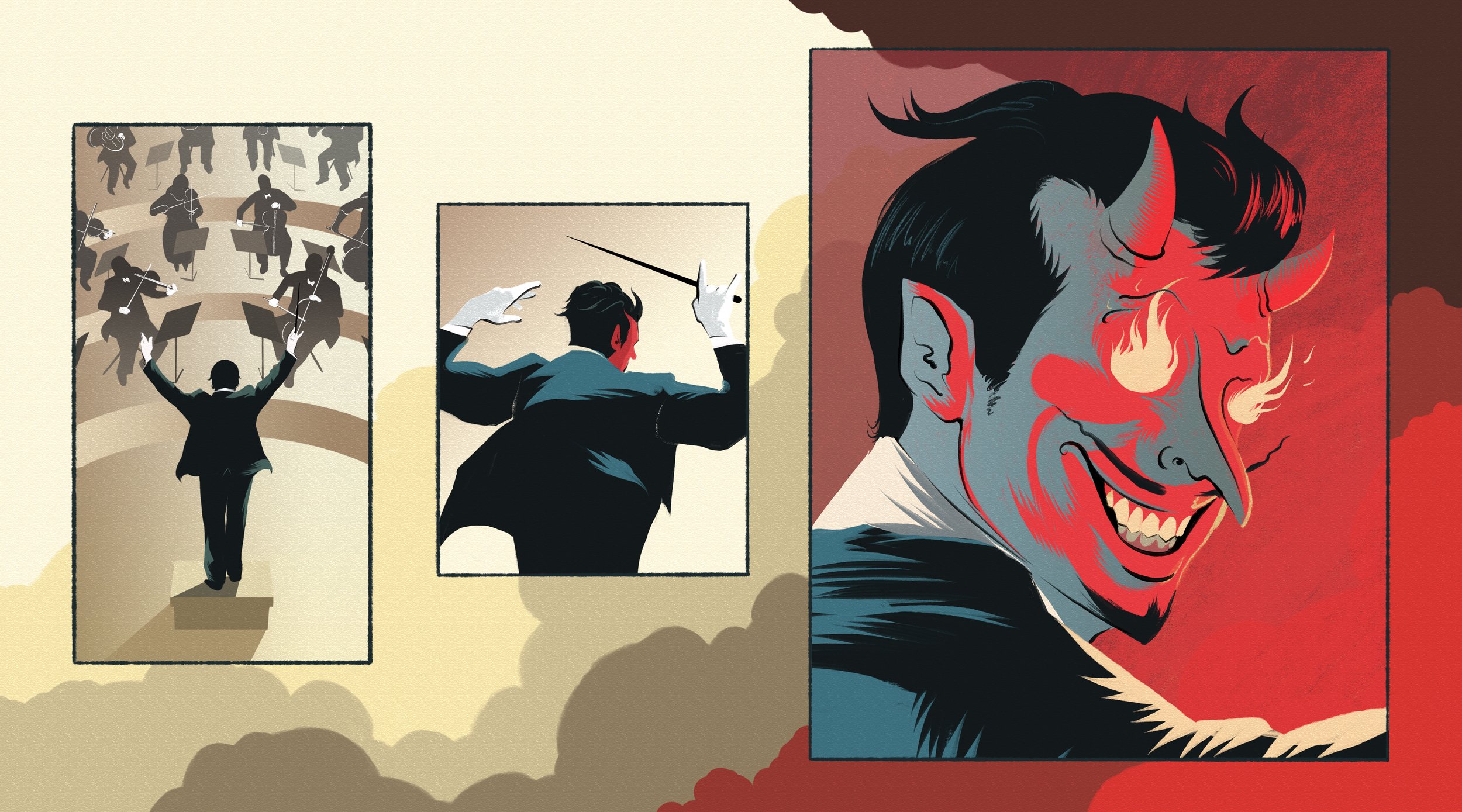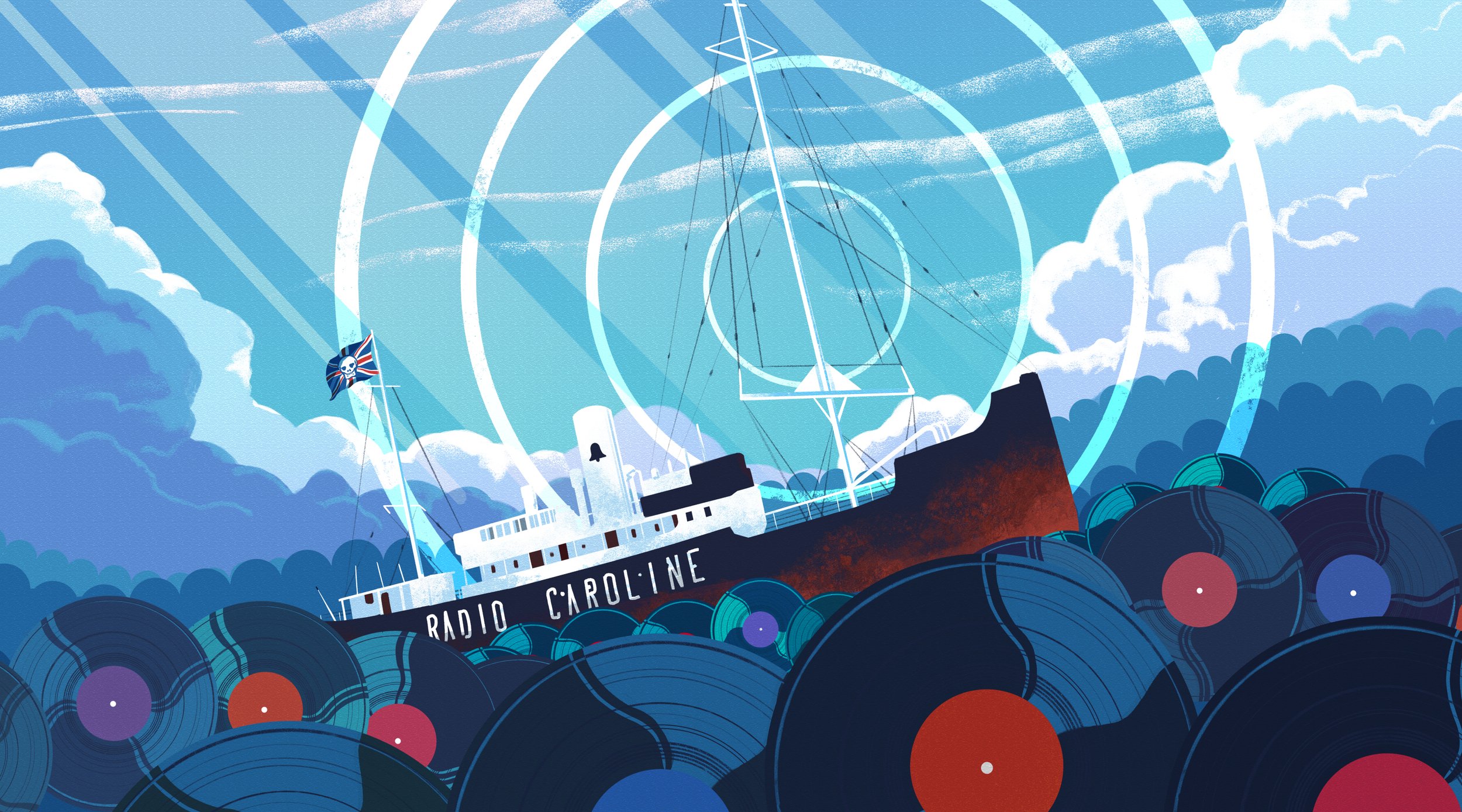We spend a lot of time curating for taste, touch, smell, and vision. But too often, sound gets overlooked. We forget that we can get rid of sounds that annoy us, and surround ourselves with sounds that we love. When we do, it can have huge benefits for our mood and wellbeing. In this episode, Dr. Laurie Santos of The Happiness Lab joins Dallas to create a Handbook for Sonic Happiness. Featuring auditory psychologist David Poeppel, psychology researcher Giulia Poerio, clinical psychologist Ali Mattu, sound scholar Mac Hagood and acoustician Trevor Cox.
Shock Horror A: The origin of the dramatic “Dun, dun, duuun!”
There’s a certain musical phrase that you’ve probably heard hundreds of times. It’s used to emphasize dramatic moments in movies, cartoons, commercials and musicals, most often as a gag. But while this little melody is everywhere today, the question is: Where did it come from? In this episode, we investigate the mysterious origins of a famous 3-note sting. Featuring Sound Historian Patrick Feaster and Composer Dick Walter.
Breathe: My Unexpected Journey
What if you woke up one day, and found that you could no longer do the thing that gave you the most joy in your life? The thing that gave you purpose? The thing that defined your past, and was supposed to define your future? For our 150th episode, Dallas tells the personal story of how he lost something that meant the world to him… and how that loss eventually led him to become the person he is today. This story comes from the podcast Meditative Story.
Relearning Boléro: How our brains rewrite the sounds we hear
In the same way that optical illusions can trick our eyes, auditory illusions can trick our ears. This raises a serious question: what is hearing, and how much of it is actually made up by our brains? In this story from the Unexplainable podcast, we explore how our brains create the sonic world around us, and what it takes to harness that mysterious power. Featuring psychologist Diana Deutsch, hearing researcher Matthew Winn and author Mike Chorost.
Ghosts in the Hit Machine: The secrets of musical ghostwriters
Many of today’s biggest songs are written and produced by people whose names don’t appear anywhere in the credits. They’re called ghostwriters and ghost producers, and they’re a huge part of the music industry. So what’s it like to watch your song become a hit when you can’t legally talk about it? And how do you get in the mindset of a legendary rap star, in order to write verses for them? Featuring rapper and ghost songwriter Skyzoo and producer Dame Taylor.
The Waterphone: Hollywood’s spookiest sound effect
For nearly half a century, one eerie sound has been showing up again and again in movies and TV shows. It’s typically used when something spooky or mysterious happens—and it can be heard in Poltergeist, The Matrix, Let the Right One In, and countless episodes of Unsolved Mysteries. So where did this strange sound come from, and how did it spread across Hollywood? This story comes from the podcast Every Little Thing.
Hidden Hitmakers: The unsung heroes behind pop’s biggest hits
The names of pop and rock stars are known by millions of people around the world, but the people who actually write their music often stay in the shadows. In this episode, we peel back the curtain on the songwriters behind some of the biggest hits of the last forty years, and find out how this unseen part of the industry really works. Along the way, we’ll get the inside scoop about working with KISS, Bon Jovi, Ricky Martin, Snoop Dogg, Puff Daddy, and more. Featuring songwriter Desmond Child and rapper/songwriter Gizzle.
Pirate Radio: Britain’s AM rebels of the ’60s
In the 1960s, the BBC had a vise grip on British radio, and rarely played the pop and rock music that was all the rage. So a group of rebellious radio DJs decided to give the people what they wanted, and started broadcasting popular music from boats stationed in international waters. Soon enough, these young DJs became national superstars… until the British government decided it was time to sink these pirates once and for all. This story comes from the History This Week podcast.








